- Type of medical facilities
- Choose a specialty (medical specialty)
- Before going to see doctor
- At the hospital/clinic
Type of medical facilities
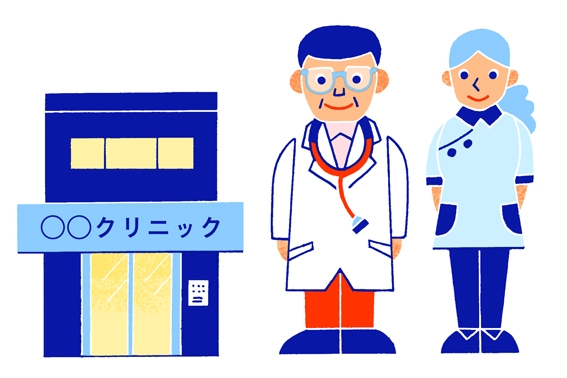
There are small medical facilities for minor illnesses and injuries, and hospitals for hospitalization and surgery.
- Small medical facilities - "clinic (クリニック)", "doctor's office (医院)", "dispensary (診療所)", etc.:
You will go to a small medical facility for a minor injury or sick.
You can have a consultation for your health concerns as well.
Having a "primary care doctor (a doctor who helps you manage all aspects of your health)” near your home can give you peace of mind.
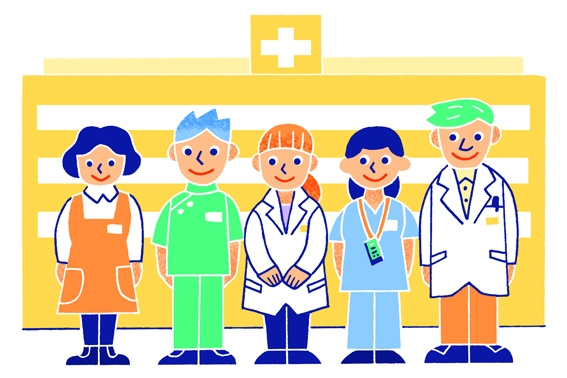
- Hospitals - “general hospitals (総合病院)”, “university hospitals (大学病院)”, etc.:
You will go to a hospital if you need to have a detailed examination, hospitalization, or surgery.
A “referral letter” is required to go to a general hospital or university hospital.
[Referral letter "紹介状"]
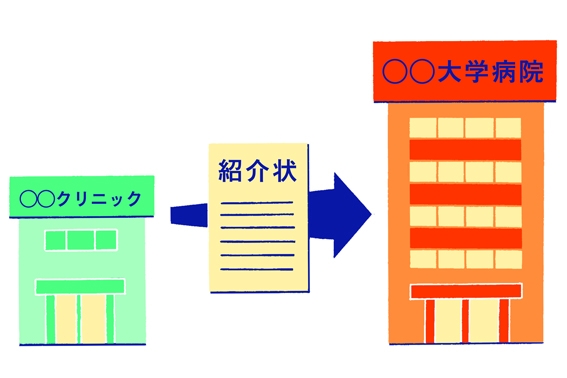
A “referral letter” is a letter written by a doctor for a doctor at another hospital.
It contains information about your illness or injury.
Before going to a hospital, get a referral letter from your doctor.
If you go to a hospital without a referral letter, you will be charged an additional fee.
Choose a specialty (medical specialty)
Hospitals and clinics have various "specialties (medical specialties)."
You need to choose which specialty depending on which part of your body is sick or injured.
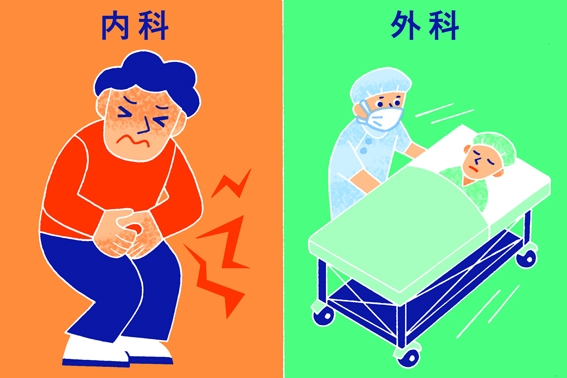
[Internal Medicine "内科"]
Choose this specialty if you do not feel well such as having a cold or a stomachache.
[Surgery "外科"]
Choose this specialty if injured or for a surgery.
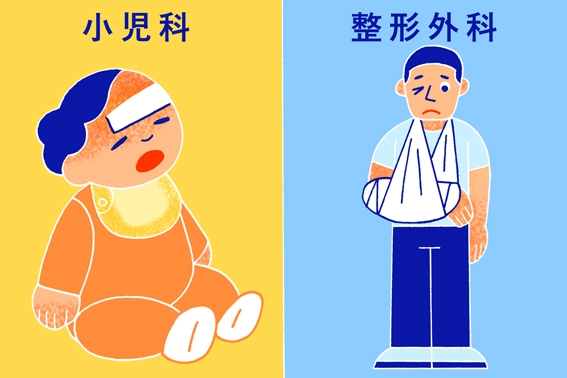
[Pediatrics "小児科"]
Choose this specialty if a child or baby gets sick.
[Orthopedics "整形外科"]
Choose this specialty if a bone is broken or you have pain on hip, knees, etc.
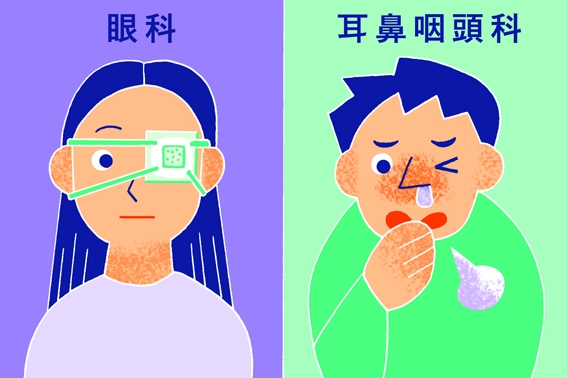
[Ophthalmology "眼科"]
Choose this specialty if you have a problem with your eyes.
[Otorhinolaryngology (ENT) "耳鼻咽頭科"]
Choose this specialty if you have a problem with your ears, nose, or throat.
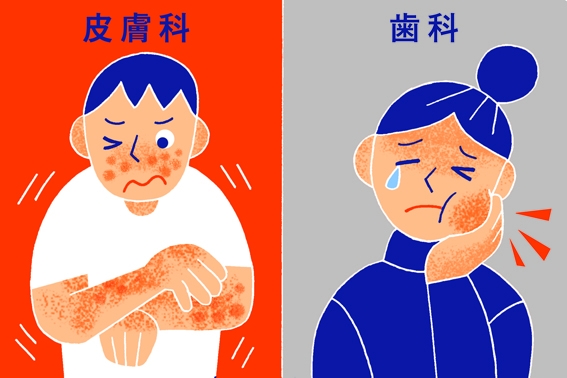
[Dermatology "皮膚科"]
Choose this specialty for skin related conditions.
[Dental "歯科"]
Choose this specialty if you have cavities or need a teeth-cleaning.
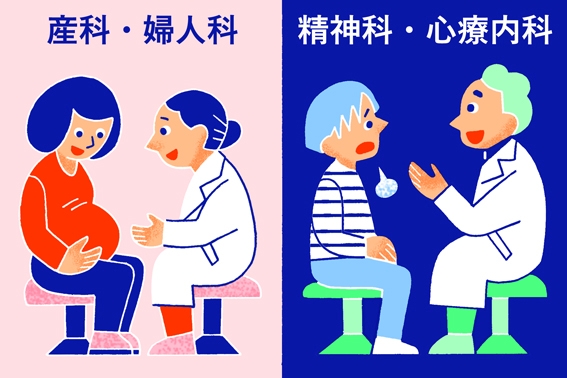
[Obstetrics "産科", Gynecology "婦人科", and Obstetrics and Gynecology "産婦人科"]
Choose "Obstetrics" if you are pregnant.
“Gynecology” is for diseases of women.
"Obstetrics and Gynecology" is a branch of both Obstetrics and Gynecology.
[Psychiatry "精神科" and Psychosomatic Medicine "心療内科"]
Choose this specialty for psychiatric problems.
Before going to see doctor
There are many hospitals/clinics where you can see a doctor without an appointment, but there are also ones that require an appointment. An appointment may let you see a doctor without waiting too long at the lobby sometimes.
Hospital/clinic hours may vary depending on the day of the week.
Inquire by phone or check with the hospital/clinic’s website before going there.
Prepare the following items for the first visit:
- Health insurance card - if you forget it, you will be charged a lot.
- Identity verification documents - residence card, etc.
- Cash - small medical facilities often only accept cash for a payment.
- Medicines and supplements you are taking - bring your medicine notebook if you have one.
- A referral letter – it is required when going to a hospital.
At the hospital/clinic
When you visit a hospital/clinic for the first time, the flow will be as the following:
[Check-in]
- Tell the receptionist, "This is my first visit," and present your health insurance card.
- Get a “medical questionnaire”.
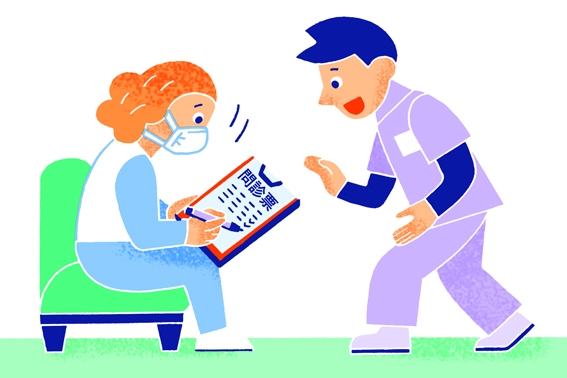
In the medical questionnaire, write down your current physical condition, past illnesses/injuries, and whether you have any allergies, etc.
- Submit the completed questionnaire to reception and wait at the lobby
[Consultation]
"Consultation (shinsatsu)" means that a doctor examines a sick or injured person.
- When the hospital/clinic staff calls your name, enter the examination room.
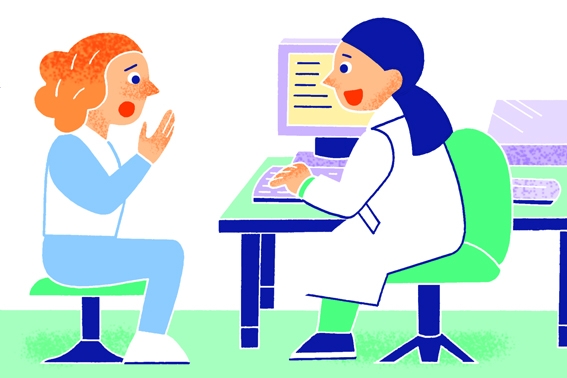 After the doctor asks you questions and examines your physical condition, he/she will give you the necessary tests and treatments.
After the doctor asks you questions and examines your physical condition, he/she will give you the necessary tests and treatments.
- After the consultation, wait in the waiting room.
[Check-out (payment)]
- Pay at the reception when the hospital/clinic staff calls your name.
- Receive your patient registration card, prescription (a paper where your doctor has written information about the
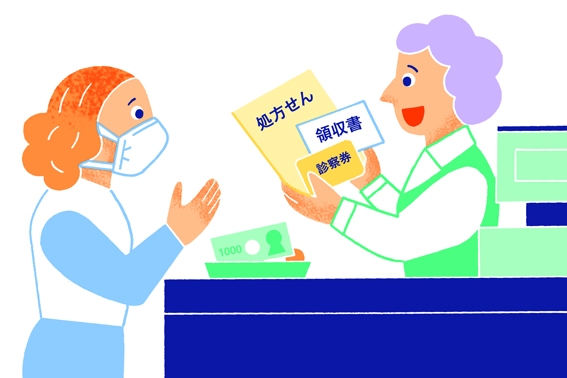 medicines you need), and a payment receipt.
medicines you need), and a payment receipt. - Check whether another appointment is necessary if a “return visit” is required.
Things to be aware of when going to the hospital/clinic
[Cannot speak Japanese]
You can find a hospital/clinic that foreign languages are available at the following help desks and websites:
- Tokyo Metropolitan Medical Institution Service "Himawari"
TEL: 03-5285-8181
Business hours: Everyday 9:00 am -8:00 pm
Language: English, Chinese, Korean, Thai, and Spanish
Tel: 03-6233-9266
Time: Monday-Friday 10:00 am -4:00 pm
Language: English, Chinese, Korean, Spanish, Thai, Portuguese, Filipino and Vietnamese
You can also search for hospitals on the following sites:
- Tokyo metropolitan Medical Institution and Pharmacy Information Service (machine translation available [English, Chinese, and Korean])
Sample medical questionnaires written in foreign languages (23 languages) are posted on the following website.
It can be a helpful tool to explain your symptoms of illness or injury when seeing a doctor.
[Special requests]
Let the hospital/clinic staff know if you are restricted for some medical treatments, etc. due to religious or cultural reasons.
[Receipts of medical expenses]
Do not throw away the receipts you receive at the hospital/clinic or pharmacy.
Those who paid more than 100,000 yen in a year can reduce income tax for that year.












